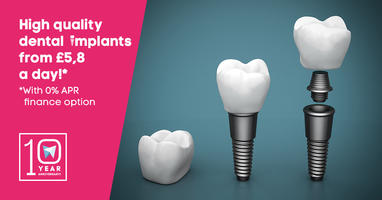“Dear dentist,
My dentist has recommended that I get dental implants for my missing teeth. I have three missing back teeth on my lower left side. I know that this is a good idea in certain ways, but how do I know that I will not be in that 2% that experience dental implant failure, and even more seriously, how do I know that I won’t experience peri-implantitis? I know the chances are relatively small, but how do I know that I am not going to be one of those unlucky few that experience severe complications? Are there any circumstances or factors that make me more likely to experience peri-implantitis? How do I know? How can I prevent it?
Thanks in advance,
Tori”
Dear Tori,
This is a very complicated question that actually has more than one question inside it. It’s like there are several questions wrapped in this one, and I will take the time to go and answer each one of them.
First of all, there is no way to know for sure if a dental implant is going to fail or not. If that could be known, there would be no dental implant failures. Roughly the same thing can be said for peri-implantitis,although we are a little bit better about that, as we know why this condition arises, and can give advice and take steps to prevent it, but in the end, it is going to be a question of how the tissue reacts to this kind of stress, and if the tissues can hold together and keep the dental implant in place. There is no absolute surety about whether or not the dental implants will fail in 10, 15, or 35 years, that is not for us to know, often times we cannot even predict what the oral environment of a given patient will look like in 5 years, let alone for the amount of time that dental implants are supposed to be good for. What we can do is make the best dental implants, implant them in the best way we know how, and cover the progress of the patients to see how well they do.

We do however know of several factors that make it very likely for dental implants to fail, and there are many factors that make dental implantation a very risky and a completely pointless (and very expensive) exercise in futility. Here are some of those factors.
Smoking tobacco, chewing tobacco, ingesting snuff and in general smoking any substances is bad for your teeth, your gums, your jawbone, can cause oropharyngeal cancer, and this is also true for consuming alcohol, albeit to a much lesser degree. Since exposure to the harmful chemicals in cigarette smoke and in alcohol causes the gums to recede, it is a pretty safe assumption that these types of lifestyle factors have a significant role to play in the formation of peri-implantitis.
Periodontitis, or inflammation of the gums is also a major factor. The bacteria that cause the gums to discolor, swell up and bleed frequently can also be responsible for widening the gap between the dental implant and the sides of the gingiva and jawbone that are supposed to completely envelope it. These bacteria have to be present in the mouth first, and start eating away at the jawbone in order to cause peri-implantitis.
Improper placement of the dental implant is perhaps the number one cause of peri-implantitis, for if even the smallest gap is left, food will become impacted, the dental implant will experience micro movements that will eventually wear the bone out causing an ever increasing space around the dental implant, which is essentially what peri-implantitis is.
Improper at home oral hygiene is also major factor.If you do not care for your dental implant, you may not notice the first signs of peri-implantitis, and may only realize something is wrong until something is really, irreversibly wrong.
These are pretty much all of the factors that we know of that are somehow preventable or that can be cautiously avoided that can cause peri-implantitis. Aside from these factors, diseases such as osteoporosis, certain forms of arthritis, haemophilia, diabetes and more or less all autoimmune diseases makes you unable to be implanted at all. If you suffer from one of these diseases, your dentist should not have mentioned dental implants as an option at all. And if you keep on top of the ones mentioned above, you should be able to wear your implants for the rest of your life.
image: 1.

